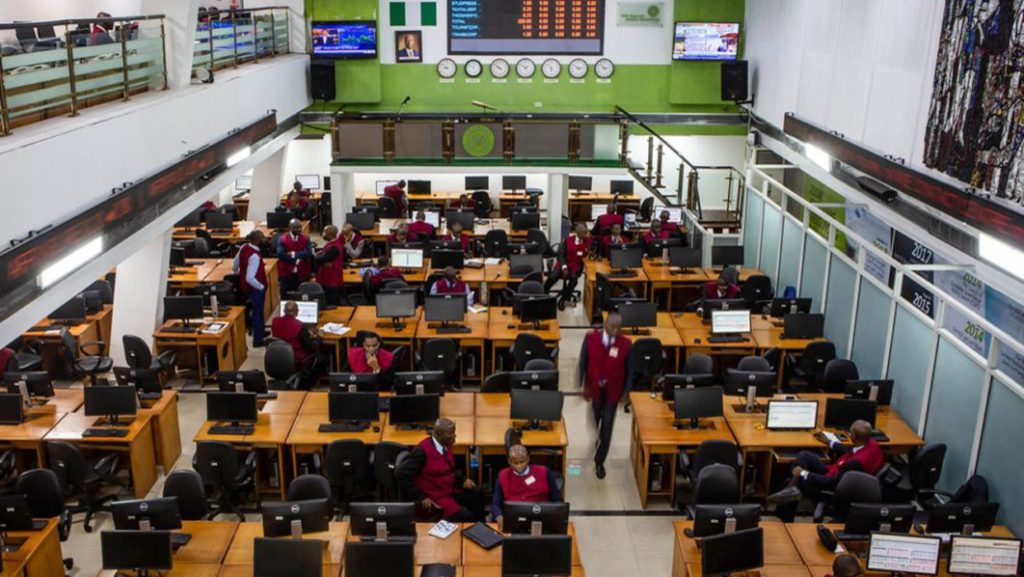The Nigerian equity market experienced a robust performance during the reviewed week, demonstrating significant growth and positive investor sentiment. The All-Share Index (ASI), a key indicator of market performance, surged by two percent, reaching 108,053.95 points. This upward trajectory was mirrored by a substantial increase in market capitalization, which climbed by 2.78 percent to close at an impressive N67.418 trillion. This signifies a gain of N1.83 trillion in market value, reflecting a strong week for investors and bolstering confidence in the Nigerian stock market.
Trading activity on the Nigerian Exchange Limited (NGX) was vibrant, although slightly lower in volume compared to the preceding week. A total of 2.414 billion shares, valued at N55.512 billion, were traded across 80,988 deals. This contrasts with the previous week’s figures of 3.051 billion shares worth N98.350 billion traded in 72,535 deals. The reduction in trading volume could be attributed to various factors, including profit-taking activities after the previous week’s gains, or cautious investor behavior in anticipation of upcoming market events. Despite the slight dip in volume, the substantial value of transactions indicates continued investor interest and participation in the Nigerian equity market.
Sectoral performance showcased the dominance of the Financial Services Industry, which spearheaded trading activity. This sector accounted for 1.398 billion shares worth N24.039 billion, traded across 31,919 deals. This represents a substantial 57.92% and 43.30% contribution to the total equity turnover volume and value, respectively. The Services Industry followed, albeit with significantly lower trading volume, registering 247.303 million shares worth N1.165 billion in 6,277 deals. The Consumer Goods Industry also contributed notably, with a turnover of 153.776 million shares valued at N3.939 billion in 8,405 deals. This strong performance by the Financial Services sector underscores its continued importance and attraction for investors in the Nigerian market.
Analysis of individual stock performance revealed that three equities dominated trading activity. Sterling Financial Holdings Company Plc, Access Holdings Plc, and Secure Electronic Technology Plc collectively accounted for 455.469 million shares worth N5.273 billion, traded in 6,654 deals. These three equities alone contributed 18.87% and 9.50% to the total equity turnover volume and value, respectively. This concentrated trading activity in specific stocks suggests investor focus on these companies, likely driven by positive news, strong financial performance, or anticipated future growth.
The Exchange Traded Funds (ETFs) and bonds market also witnessed trading activity during the week. A total of 48,850 ETF units valued at N19.310 million were traded in 95 deals, compared to 53,950 units worth N5.104 million traded the previous week in 58 deals. Furthermore, 77,290 bond units worth N70.809 million were traded in 47 deals, which contrasts with the 37,219 units valued at N28.751 million traded in 42 deals in the preceding week. The increased activity in both ETFs and bonds indicates a diversification of investor interest across different asset classes, potentially reflecting a search for yield and risk management strategies.
Overall, the Nigerian equity market displayed a positive trend during the reviewed week, with the ASI and market capitalization posting significant gains. The Financial Services Industry led the charge in trading activity, while trading in specific equities significantly contributed to the overall market turnover. The market breadth, measured by the number of advancing and declining stocks, further reinforced the positive sentiment, with more equities appreciating in price than depreciating. This positive performance follows a similarly bullish trend from the previous week, where the market recorded a gain of N884 billion and the ASI appreciated by 1.38%. This consistent upward movement suggests a strengthening market and increased investor confidence in the Nigerian economy.














